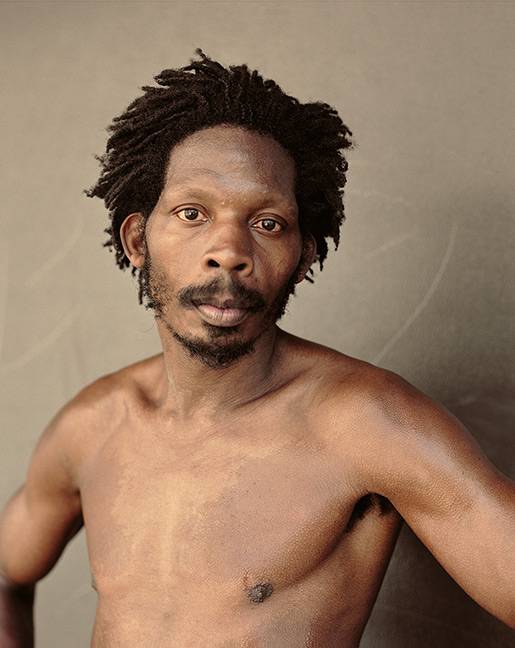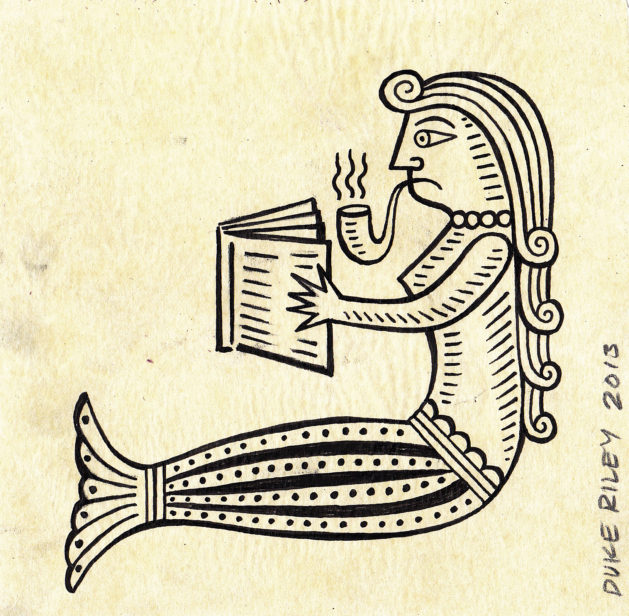A Holocaust Story
by Idan Cohen
What happened was this: Ben said, “We are all going to die.”
And I said, “Shut up!”
The ebony walls of Yad Vashem enclosed around us, boxing us in like kittens left in the middle of a road
“We are,” he said calmly.
And the memorial pictures, those black and white stark photos of men with stupid mustaches and beautiful women with no fashion sense, they glared at both of us, reproaching, dying, dying, like, all the time.
“You are so depressing,” I said. I would have said; “You are so fucking depressing.” But we were children, and children at that age still listen to their parents. Today, looking back, I can say; Ben, you were so fucking depressing.
I put my hands in my pockets and would have kicked at something if there was something to kick at, if this wasn’t hallowed ground, a burial spot for dreams, all ebony and tears. So what if we are all going to die, I asked myself, walking forward with my head down to join the rest of the class, leaving Ben to stare at the constantly changing orchestra of the dying on the plasma screen. So what? It’s no big deal! So engrossed in philosophical digression was I, I didn’t notice the large back of Fat Rotem until I crashed into it. There I was; and I was hardly her size, maybe the third smallest in the class, softly enfolded between her immense shoulder blades, the flesh of her holding me like the sea.
I stepped back. Some of the class had turned to look at me, and I gulped. I knew this meant about a month of teasing about being Fat Rotem’s boyfriend. I avoided her eyes and dashed forward to the comfort of my social stratum.
“What was that?” asked Ofir, from my left side. On the right side, Chai silently grinned at me, a stigma instigator being given an award.
“Shut up!” I told both of them preemptively. Chai’s grin widened.
“Hey,” said Ofir, distracted by the emptiness to his own left, “where’s Ben?”
“He’s back there,” I said, gesturing to the ebony corridor behind the hall, “being all depressing.”
“What did he say?”
“That we’re all going— ” Mrs. Zach’s piercing gaze caught mine. She didn’t even have to say anything, only pointedly stare. Okay, my eyes replied. Man! Teachers!
“Sit!” She commanded, a drill sergeant. Lunchtime rumor had it that Mrs. Zach had actually been a sergeant major in the army. Others, more tongue-in-cheek, had it that she had been a tank. We, perfect little soldiers, sat.
The Yad Vashem guide, a young girl who, if I had been older, I would have been utterly infatuated with, cleared her throat. As it was, I didn’t like her hair. It was stupid. “One and a half million children were killed in the Holocaust,” she said by rote. Having said it so many times, she had completely forgotten that the statement had any meaning. “These,” and here she gestured around, her fingers extending carelessly, so sure she would find a relic, “are the toys we have found.”
“Psst!” whispered Chai. “Fat Rotem’s boyfriend!”
“Shut up!”
“What did Ben say?”
I cased the surroundings with the spy’s finesse every child in Mrs. Zach’s class had to learn to survive. The guide with the stupid hair was droning on about a stupid old doll, and Mrs. Zach was completely engrossed. The attached medic, a twenty-one-year-old all the girls in class had fallen in love with on the bus, leaned on a wall and gave the impression of needing a cigarette.
The three of us leaned into a conspiratorial circle.
“He said we’re all going to die!” I whispered gravely. Ofir and Chai leaned back, their eyes wide.
“Wallah,” Chai exhaled softly.
“That’s stupid!” whispered Ofir forcefully. “What does it have to with anything?”
“That’s what I said!” I told him.
We settled down from our conspiracy, communing in solitary upon what we had put forward. I even listened to the stupid hair guide for a moment.
“You can take ten minutes and look at the toys of those children,” she said.
We sat there, intently waiting for the next sentence. When none came, we stirred in our seats uneasily. The guide looked nervously at Mrs. Zach.
“Go on!” said Mrs. Zach.
Released from stasis, we scrambled to our feet and went to look at the toys.
“Hey,” crowed Ziv, “Look at this!” He triumphantly raised a black cap wearing mustachioed 1937 gentlemen of means action figure. “It’s Hitler!” A portion of the class gathered round. “Nah,” said Moshe, taking it from Ziv. “It’s a guy from some old movies my parents watch.” I looked closely at it. The man’s face was round, chubby, and his coat looked ill-fitting. The whole thing was ugly as sin.
“I think it’s just some guy,” I said.
Ziv shook his head, his decisions already made. “It’s Hitler!”
“Why would anyone have a Hitler doll?” Nurit asked in her piercing high voice, invoking a slight shudder that rippled through the class. Ziv was visibly wrestling with his urge to smack her good. We all did that when she talked.
“Those kids were stupid. Why wouldn’t they have a Hitler doll?”
“They were pretty stupid,” Moshe said, as the class nodded approvingly.
“Of course they were stupid!” said Ziv. “They all died, didn’t they?”
Even more approving nods. Only idiots died was the general perception in our class. I didn’t want to look at the doll anymore. It was just some guy, anyway. It wasn’t Hitler at all.
Ofir and Chai were on their knees looking at a rusted bicycle with a bright pink bow on the handlebars. “What you looking at?” I asked, squeezing between them.
“I have a bike just like this,” Chai said quietly. “Just like it.”
“It’s fifty years old,” I told him. “It’s probably older than your granddad.”
He looked at me so suddenly I almost fell. “My granddad was our age fifty years ago.” Chai was always good at math. I copied off him on math tests.
“Maybe it was your granddad’s bike,” Ofir said.
We all looked at the rusty shell of a childhood, that absurdly new bow on the back suddenly flowing back as if there was a wind, then settling back. I thought of my bike, with five gears and an air-gel cushion and everything.
“My granddad never rode a bike.”
“It still can’t be just like yours,” Ofir said, anxious to prove a point. Ofir was like that; Ofir liked to prove things. “It’s really old.” We both turned our eyes on Chai, waiting to see what he’d say.
“Yeah,” he said. “Probably.”
There was a sudden clapping of hands, which instinctively brought us to our feet, ending the conversation forever. Mrs. Zach continued clapping until everyone stopped looking at things other than her tightlipped face. “Follow Ifaat, please!” she instructed. Ifaat was the guide with the stupid hair. She smiled nervously at us and waved, as if we hadn’t been following her for the past half hour already. The class started tromping silently out of the room and into one of the endless ebony-gray corridors.
“Hey!” whispered Ofir. “What about Ben?”
I slowed my steps until the mass of the class hid us from Mrs. Zach at the front. The medic wasn’t walking at the end like he was supposed to, he was in the front now, talking to Ifaat. Ick. I fretted for a moment, walking forward a step and then backwards, trying to see if anyone was looking. Fat Rotem, always in the back, looked at me with her sad eyes as she passed, and Chai didn’t even say a word. We were the only ones left in the room.
“Come on!” I said, and headed back to the other corridor. There were actually two corridors out of the room with the bike and the doll that wasn’t Hitler or a movie star or anyone special at all. One led to where Ben was. The other led to where Ben wasn’t. Ofir and Chai followed. Chai’s eyes stayed on the rusting bike until it was out of sight.
After a few meters, the corridor lights suddenly stopped. It was almost completely dark. We walked for a few moments more, our hands on the walls, constantly touching each other, making sure there was still someone else in the universe.
Then the voice of God said, “DIERDRE SELACH.”
We all jumped, but when we found each other with our hands we calmed down again.
“The speakers!” said Ofir.
“Yeah,” I whispered back, just so he’d know he wasn’t the only one to figure it out.
We walked another meter, and the voice of God said BEN SAVION. We walked another meter and the voice of God said Nineteen thirty, Nineteen forty. Feeling our way through another meter, the voice of God said MORDECHAI DYAN. Another meter and the voice of God said Nineteen twenty four, Nineteen forty. We walked another meter and the voice of God said DAVID CZERNIAKOW. Another meter and suddenly we could see and the voice of God spoke no more and we were in another exhibit.
The walls were filled with photos of people. They were mostly in black uniforms with this sort of sharp hat, and that was black too, and had an edge and sometimes an eagle on it. They looked like people do, and for a moment I was confused why they were up there, why they were important, why they all had fancy black uniforms.
“Nazis!” exclaimed Chai softly, his breath spreading the word across the empty room like poisonous gas.
“No way,” I whispered back, the voice of God still echoing in my head as I spun around and looked at the photos, studying the uniforms. “They look just like regular people.”
“They are!” he grated back.
Ofir stared. “Why are you whispering!” he suddenly shouted, his voice echoing all around. I shuddered. “Shut up!” I whispered hoarsely at him. “You’ll wake them up!”
They both stared at me and I tried to hide inside my body.
“Where’s Ben?” asked Chai at last, still giving fleeting glances to the perfect white faces below perfect black hats with eagles on them.
“I don’t know,” I said, deciding not to tell them that I’d taken the wrong corridor, not wanting to go back through the tunnel of the voice of God. “Probably somewhere through there.” I pointed randomly. These rooms were all connected. We’d find the room with the plasma screen showing the dead in no time.
“Let’s go,” Ofir said, still not whispering in that way he had, on purpose. I glared at him and walked ahead into the next room. It was filled with the rusting remains of a really old rail car, so rusted it was no longer brown but the blackish brown of decay and corrosion so palpable you should have smelt it, though you couldn’t. As if it had been left rusting on purpose. Out of spite.
“What is that?” asked Ofir. Chai and I exchanged looks, both of us half shrugging, still not able to do a small shrug without shaking at least half of our bodies. Neither of us knew. Ofir went closer and touched the thing. I wanted to go find Ben, but went and touched it too. It felt like rust, like thorns, like regular metal. Chai didn’t touch it. Ofir went and read the plate next to it.
“One of the rail cars,” he read carefully and slowly, giving each word space to settle, “that brought passengers to Birkenau.”
Ofir looked at the rail car thoughtfully, and then read the plate again, mouthing the words to himself.
“Huh,” he said.
“Can we go find Ben now?” I asked.
“Sure.”
We went past the rail car that did not stink of death, that felt like regular metal and thorns, and into the next room, where a group of tourists with flip-flops and pasty white skin stared at a bunch of books lying with tattered covers in a concrete ditch. We crept by them softly, not wanting to be noticed and asked as to the whereabouts of our teacher and guide, barely noticing the plasma screen showing black and white video of a great big fire.
“I’m starving,” I told Chai. “A cookout sounds really great.”
“Wallah,” he replied. We passed the last of the pasty tourists, glancing back all of the time in case they suddenly decided to chase us. “Did you bring a lunch?”
“Two pitas with chocolate spread,” I told him. He made a face because he didn’t like chocolate spread. I knew that, which was why I asked my mother for it, so he wouldn’t eat all of it. Ofir shouted to us from ahead, and again for a moment I shivered, not knowing why, we were not even in a room with pictures now, there was no one to wake up.
“Ben’s here!” Ofir shouted, and I shivered but followed his voice.
Ben was in the next room, a room with the hole in it covered by glass, in which were like thousands of really old shoes. Ifaat had told us that these had been the shoes of those killed in the gas chambers, and had then smiled at the medic, who gave the impression of needing a cigarette. Ben was sitting on the glass staring down, his fingers trawling up and down on it, picking out shoes and tracing their form, one after the other.
He saw us coming and raised his eyes, which were haggard and red with tears.
“Hey guys.”
“Hey Ben,” we chorused, slightly embarrassed now that we had disturbed him, made him stop his tracing of shoes, maybe he’d lost count and would have to start over.
“We’re all going to die,” he said. His eyes candle sockets.
“Come on, Ben, we need to get back to the class before Mrs. Zach notices we left,” I said.
His eyes met mine.
“What’s that matter? Look around!” his voice suddenly rising in volume but lowering in pitch. But I didn’t shiver this time.
Chai sat down in front of Ben, who was staring down again. He met his eyes. “Hey, you’re right,” he said, “we are all going to die.”
Ofir and I stared at him. He could feel it on his back.
“Well, we are!” He turned to us. Ben stared at him too. “We are.” He said more softly, now fixing his gaze on the shoes below. I stared too. Ofir stared up into space, at the gray roof of the room of Yad Vashem, the cat box in which we had been left. We stared, we stared for the longest time.
“But not today,” I suddenly said. Everyone looked at me.
“Not today,” I said again, looking at all of them, then at the shoes again, then up, trying to see what Ofir saw, and couldn’t. “Right?”
Ofir stared up, abstracted, and thought about it like he thought about a science problem, studying the issue until it was clear. We stared at him, hoping for a good answer. You could trust Ofir to tell the truth, no matter to who and what would happen after he told it. At last he nodded. “Probably.”
A slow grin spread itself across Chai’s face. “Yeah, probably not today.”
We were all almost overcome with giggles, unable to understand why, but we didn’t release them, they showed only in the curve of our pained smiles, in the effort of keeping them in. We looked at Ben, who smiled weakly. He got up from the glass shoe cage and walked to us, taking his place, so we were all again together like we were supposed to be, Chai on the right, Ben on the left, Ofir between Ben and me, and me between Ofir and Chai.
And then we all would have started giggling like crazy, but Ben suddenly looked at his watch, a new thing his dad had bought him just last month. It had all the gadgets and was digital, and he looked up at all of us in horror.
“It’s six! We need to be at the busses right now!”
All traces of laughter or despair vanished. We exchanged frightened glances. “Mrs. Zach will kill us!” exclaimed Chai.
Ofir blanched, he was Mrs. Zach’s favorite, she’d kill him even more than the rest of us. Ben came back to his senses pressed with the imminent danger presented, his eyes filled with healthy practical despair. We were so dead.
“This way!” I said, pointing to a random corridor which might or might not lead to the exit. And I don’t know why, they followed me.
And we ran.
Idan Cohen is a bi-lingual Israeli, infected with English during a few formative years in San Diego. He holds odd jobs as a rough laborer and dreams about being a kind of cultural philosopher/engineer. During the Holocaust his granny hid in a wardrobe in Romania, but she always preferred talking about training for the Hagana at the detention centers in Cyprus. And that may be optimism in a nutshell.






